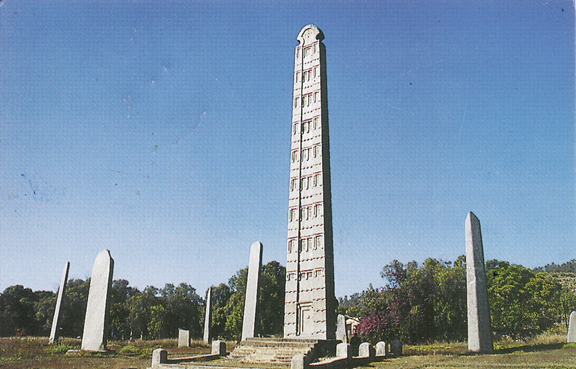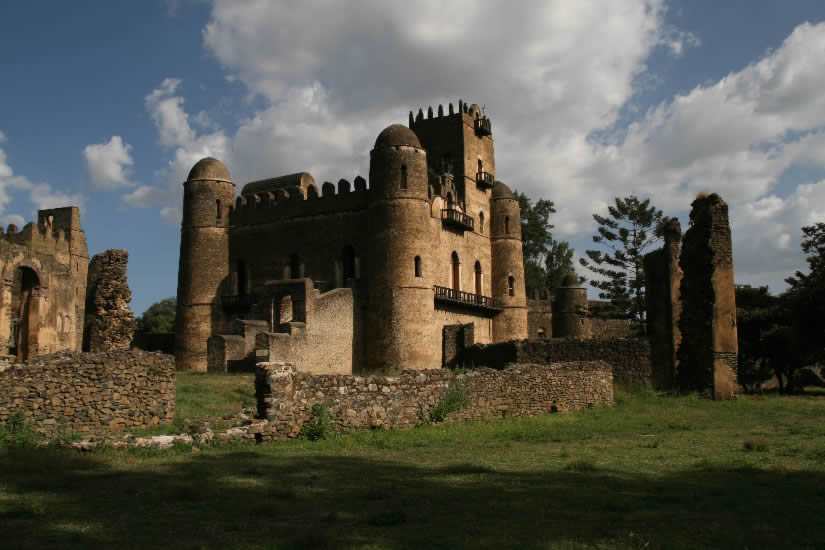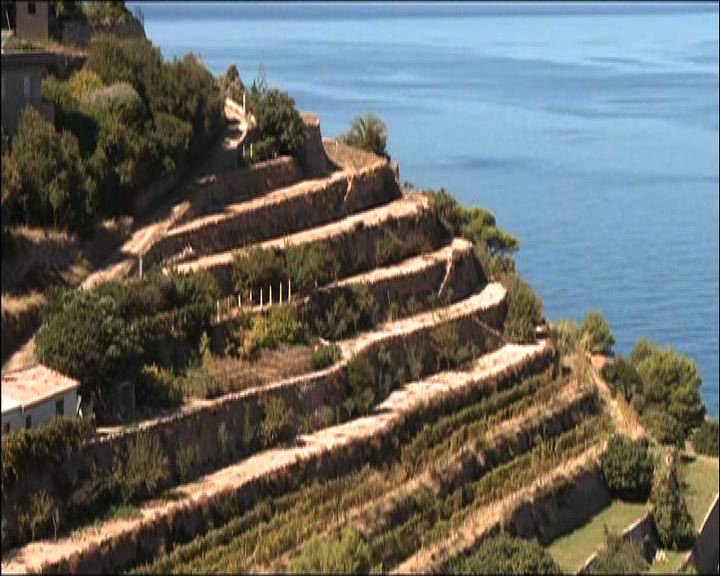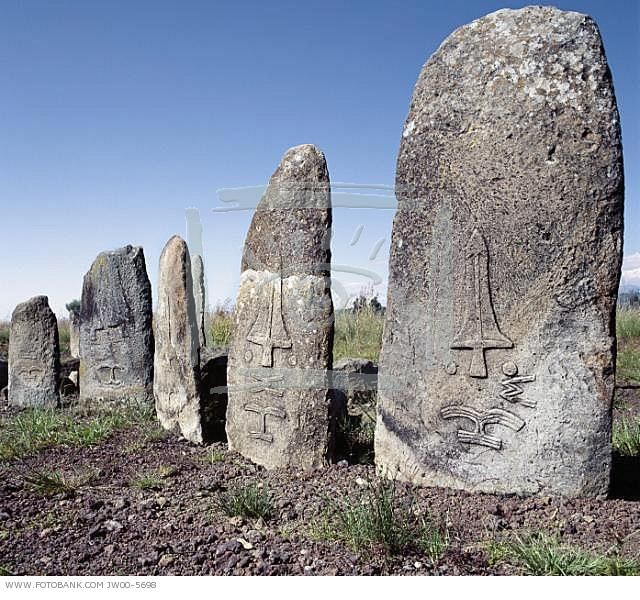Home to nine UNESCO World Heritage sites Ethiopia complements Africa’s ancient creations. The Ethiopian ancient architectures portrayed at Lalibela and Aksum tell a lot about the Ethiopian ancient civilization and society. Situated in the highlands of northern Ethiopia, the Aksum masterpiece symbolizes the skill of ancient Aksum. As one of the most powerful states between Eastern Roman Empire and Persia, Aksum lasted for centuries at the crossroads of Africa, Arabia and the Greco-Roman World. Some of the obelisks have triangular Greek, Sabean and Ge’ez texts inscribed by King Ezana. This magnificent wonder includes monolithic obelisks, giant stelae, palace ruins, royal tombs and ruins of castles dating back to the 7th century.
The largest standing obelisk rises to the height of over 23 meters, same as a nine-storey building, this depicts the futuristic vision of the kingdom. It is widely referred to as the largest monolithic stele that ancient human beings ever attempted to erect.
Indeed the 16th century marked a creative era for Ethiopia. Fasil Ghebbi, the palace of the late Emperor Fasilides and his successors is quite remarkable. Located in Northern Gondar, it incorporates six major building complexes and other ancillary buildings of palaces, churches, monasteries as well as public and private buildings. The place was once the permanent capital city of Ethiopia until the 18th century. Fasilides who was fascinated by architecture created a castle which was described as finer than the House of King Solomon. Gondar also houses 11 medieval monolithic cave churches also known as ‘New Jerusalem’. One of such churches carved from within the earth Lalibela, built in early 13th century during the regime of King Lalibela. It is constructed from a single rock without any stone or cement input.
A similar historical wonder can be seen at the fortified historical highland deep gorgeous of Harar. The Muslim city is surrounded by deserts and savannah came to existence between 13th and 16th century. Residents of the town constitute exceptional interior design of Harar evidencing skilful cultural heritage of the place.
The walled town Konso is no different in depicting creative human made landscape characterized by extensive dry stone terraces reaching up to 5 meters high to retain soil from erosion and to accumulate water. The terraced place covers 230 square kilometres featuring the major human achievement to adopt such a hostile environment.
Situated in northeast of Addis Abeba, Awash valley takes to one of the most important groupings of paleontological sites on the African continent. The place most spectacular fossil discovery introduced to the world when the 52 fragments of skeleton reconstructed the famous Lucy. The place shows wealth of anthropological and prehistoric tools evidencing there is much left to be discovered from the culturally resourceful location. The discovery of fossils that have been of fundamental importance in the study of early man evolution also made the South-western Omo Valley another world heritage wonder.
South of Addis Abeba, Tiya with 160 discovered archaeological sites at Soddo town also contains monument and curved stelae showing difficult to decode symbols. The place holds undetermined age of mystery and ancient Ethiopian culture registered as world heritage. The enigmatic configuration and script of up to 5 meter sculptured stelae represents the expression of the Ethiopian ancient settlers.
In the historical land of Ethiopia another world heritage is created due to massive erosion on the highlands. Over the years it created one of the world spectacular location Semen National park mountain peaks, deep valleys and sharp 1,500 meter high cliffs. It is a home to several wild lives having endemic Gelada Baboon, Semen fox and the one and only Walia ibex a wild mountain goat found nowhere else in the world. Without a doubt Ethiopia portrays not only one of the great civilizations of the ancient world remnant but also historical world heritages taking to an extraordinary level of treasured experiences.
About Jovago
Jovago.com is an online hotel booking service with offices in Lagos (Nigeria), Nairobi (Kenya), Dakar (Senegal) founded by Africa Internet Group and has MTN and Millicom as its investors. Jovago.com, Africa’s No.1 booking portal, facilitates the booking process for its users to provide them with the best hotel booking experience with fast, transparent and easy-to-use services. Jovago.com has over 20,000 local hotel listings across Africa and over 200,000 hotels around the world.
About Africa Internet Group
Africa Internet Group introduces and accelerates the online shift in Africa – for its people and its culture. It is committed to running successful and vibrant internet companies which boost the evolution of African online culture. AIG is the parent group of nine successful and fast-growing companies in more than 26 African countries, accounting for over 3,500 staff. AIG cares about entrepreneurship and brings together all the key elements required to build great companies: team, concept, technology and capital. Its network of companies includes JUMIA, Kaymu, Hellofood, Lamudi, Carmudi, Zando, Jovago, Lendico and Easy Taxi.





